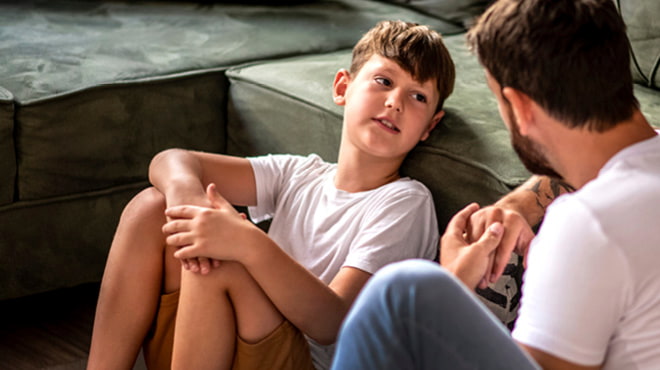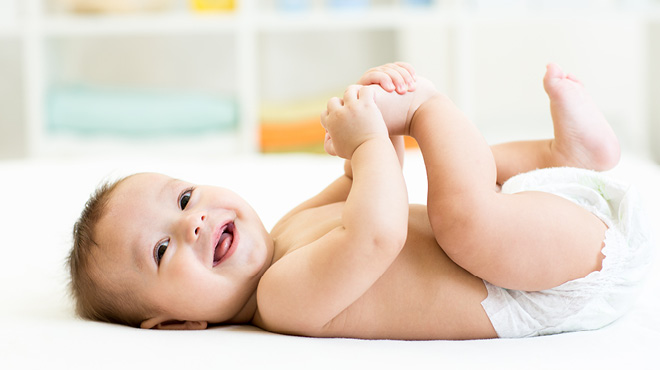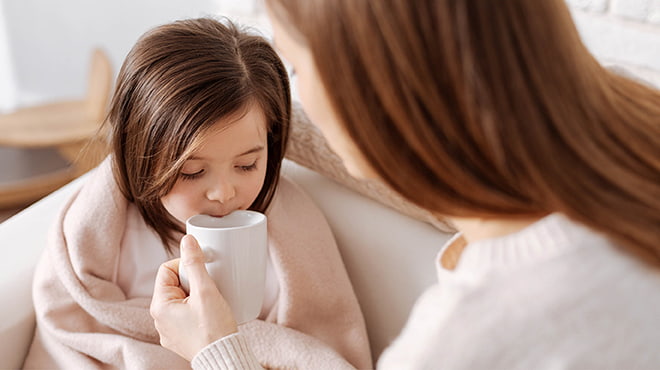Posted By

Sasha Ulrich, M.D.
Family Medicine, Primary Care

Deirdre Paulson, Ph.D.
Family Medicine, Primary Care
Recent Posts
Promoting healthy body image in children, teens

Children and teens often face significant pressure to meet strict, unrealistic and harmful societal ideals around beauty, body build, weight and shape. The quest for a perfect body or appearance can take a heavy toll on confidence, as well as physical and mental health.
Overall, the term "body image" is how people think, feel and perceive their own body. During adolescence, it can be difficult to maintain a healthy body image because of major physical and emotional changes, and social pressures, that occur during this phase of life.
Children and teens who have negative thoughts about their bodies are at an increased risk of low self-esteem, depression, substance use, eating disorders, and unhealthy body weight, including being underweight or overweight. In addition, some teenagers might engage in risky behaviors that can affect their future opportunities, such as ignoring schoolwork or participating in illegal behaviors that lead to trouble with the law.
Talking about body image
Open communication with your child is essential to promoting a healthy body image.
When you discuss body image, you might:
- Use positive language.
In general, avoid making comments about the appearance of others' bodies. Rather, comment on an individual's personal characteristics, such as optimism, persistence and kindness. For example, when someone loses weight, statements are often made about how good they look. Instead of commenting on how their current body looks compared to their past body, compliment their hard work, dedicated effort and resiliency. Also, when talking about exercise, emphasize the gains from exercise: it improves health and strength, and avoid the losses: weight. Also, create an environment where there are no hurtful nicknames, comments or jokes based on a person's physical characteristics, weight or body shape. - Be a good role model.
How you talk about and approach your body can significantly affect your child. Avoid making common subtle, negative comments about your body, such as how your body does not fit your clothes or how your body is not good enough. Another healthy behavior to model includes taking part in activities with your children and not avoiding them due to how you perceive your body, such as taking photos. Also, do not skip meals, actively choose healthy food options and do not punish yourself for eating something considered unhealthy. - Explain the effects of puberty.
Make sure your child understands the pubertal changes they will undergo, and that weight gain is a healthy and a normal part of development. - Talk about media messages.
Social media, movies, TV shows, magazines and advertisements often send the message that only a certain body type or skin color is acceptable and that maintaining an attractive appearance is the most important goal. Even media that encourages being healthy, athletic or fit might depict a narrow body type — one that's toned and skinny. Due to constant exposure to these media images and messages, children and teenagers might try to meet ideals that do not exist in the real world. Therefore, talk with your child about all of this, allow your child to ask questions, and expose them to stories and images of people you perceive are healthy role models, no matter their body.
In addition to talking to your child, here are other strategies to encourage a healthy body image:
- Establish healthy eating habits.
Teach your teen how to eat a healthy, balanced diet. Offer a wide range of foods. Talk about how food fuels their bodies and avoid labeling foods as good or bad. Promote eating until full versus eating until all food is consumed. - Limit social media access.
Social media bombards teens with messages that may harm body image. Images they see may change how they perceive their own bodies, in addition to witnessing how others react to these images. Limit the amount of time on social media or the types of content they consume or post. - Promote physical activity.
Participating in sports and other physical activities, particularly those that do not emphasize a particular weight or body shape, can help promote a healthy self-esteem and a positive body image. - Encourage healthy friendships.
Friends who accept and support your child can be a healthy influence. In particular, friends who have healthy relationships with their own bodies can be a positive influence.
When to seek help
If you feel that your child is struggling with an unhealthy body image, consider talking to your child's primary care provider or a mental health professional. Additional support might give children the tools needed to counter social pressure and feel good about their body.
Sasha Ulrich, M.D., is a resident physician in Family Medicine, and Deirdre Paulson, Ph.D., is a psychologist in Family Medicine ― both in Eau Claire, Wisconsin.




